Playing With Fire
- 3 years ago
- 45
- 0

 4 years ago
4 years ago
in question. Sometimes when you play with fire you get burned. This is the story of the first time I lost my virginity. I think its safe to say it was not enjoyable the first time. It did not happen they way I wanted it to happen, in fact I was raped. But it made me who I am today and so it is a party of me. I have a fetish for men dominating me and rough sex. It has always been a part of me and I think losing my virginity for the first time had a lot to do with it. The events I...
 3 years ago
3 years ago
Playing with Fire Nick and Anna I had been on duty or on call for the last three weeks, battling one fire after another. There was a serial arsonist out there making my life a living hell, and keeping me from my beautiful wife. I heard through the grapevine, the cops finally found a suspect and had him in custody, so the chief gave some of us the weekend off. I was so tired I was just hoping to make it home before I crashed the truck. I pulled the window down and let the cool night air...
 5 years ago
5 years ago
My husband and I have had a couple of Hotwife experiences that just kind of happened to us. We had taken advantage of the opportunities presented, but had not been the instigators. As we were planning for a camping trip with friends I decided I wanted to see if I could make something happen myself.So I chose my target. Chad’s wife Allie had told me a couple of years back that her firefighter husband found me attractive and if they weren’t together he would want to be with me. Chad was a...
Wife Lovers 3 years ago
3 years ago
---- Anna 1: Anna and the Firemen ----Trying to ignore the pain in my back, I gently squeezed Anna's firm buttocks. Such a sweet ass she had, a great handful to hold on to, to pull her against my penetrating cock as she rode me to an orgasm.She'd collapsed on my body now, her heavy breathing still puffing against my neck as she cuddled in post-orgasmic satisfaction. I squeezed her buttocks again. Let her get her breath back, and then maybe I could roll her over, throw her legs over my...
 1 year ago
1 year ago
Reddit Straight Girls Playing, aka r/StraightGirlsPlaying! Watching straight girls do something that is not-so-straight gets my motor running, and seeing as how you decided to check out a subreddit called r/StraightGirlsPlaying/, I am sure you feel the same way, right? There are many reasons why this subreddit made my dick hard, and they are all pretty obvious. But if you are interested, I shall go over all the basics and whatever the fuck I think is important.Starting with the overall...
Reddit NSFW List 4 years ago
4 years ago
Trying to ignore the pain in my back, I gently squeeze Anna's firm buttocks. Such a sweet ass she has, a great handful to hold on to, to pull her against my penetrating cock as she rode me to an orgasm.She's collapsed on my body now, her heavy breathing still puffing against my neck as she cuddles in post-orgasmic satisfaction. I squeeze her buttocks again. Let her get her breath back, and then maybe I can roll her over, throw her legs over my shoulders, and fuck her hard and fast for my own...
 3 years ago
3 years ago
The Christmas party sucked and Melissa left to go home at eleven. She wished now she hadn’t even bothered to go. Last week she bought a new silk dress just for the occasion. It rocked, totally hot: clung to her figure like the skin of a snake, low cut with a short sexy hem. Guaranteed to knock what’s-his-name’s eyes out, except when she arrived at the party what’s-his-name had already hooked up with a skinny brunette with fake boobs. Jerk! Slut! Even though the dress got her quite a bit of...
 4 years ago
4 years ago
It was funny, really, today had started out like any other normal day – or at least what's normal for me these days – and now here I am, alone and tied to a bed. Don't misunderstand, I willingly consented to this. It's all a part of the game, you see. My boyfriend and I have a very... exciting sex life. By day he's my boyfriend, Ezekiel. When we're alone he becomes my master, and I become his toy; his slave to use as he desires. I guess I should start at the beginning... * “Hey, Em,” Zeke...
Straight Sex 2 years ago
2 years ago
John was a good-looking, Irish firefighter in his 50’s. He saw Jeanne’s profile and thought he would send her an email. To his surprise, she responded to it. He explained he had been a firefighter for a while, was divorced, and had two children. He also gave a physical description of himself. He had salt and pepper hair and was balding. Jeanne did not know what she thought of the baldhead since she always had liked men with lots of hair and preferably curls. One day he asked her to call him...
 4 years ago
4 years ago
We’re lying on a grassy hill by this gorgeous lake somewhere pretty far away from the party we were just at. Its past midnight, but I really don’t know anything beyond that. Details are blurry right now…all that matters is the warm weight on my chest and the vanilla scented hair brushing my cheek. Oh god…the lights are so bright. So colorful and shimmering…there are too many of them. It would be scary if I didn’t have somebody to hold onto. ‘The stars, they look like fireflies…rainbow...
 2 years ago
2 years ago
A second-person-viewpoint narration of a Pagan journey through a year-and-a-day of the familiar, to find the mystery behind the mysteries. Yes, this is a magical gendershift story. ---------------------------------------------------------- Between Two Fires --Kiai 24sep03/29jul06/05mar07 Perhaps it is being brought up Pagan that has brought you to this. Where other religions segregate the sexes with walls of guilt and shame, never to meet...
 4 years ago
4 years ago
SPITFIRE by Alex B. Shannon Blake couldn't help it. She simply had to talk herself into trouble.This had been a problem for her growing up at home, at school and later on,wherever she worked. She seemed to crave confrontation and constantly foundherself arguing with others over the smallest of issues. Of course, this wasbefore she met Erik Powell. The two had been dating less than a month when Shannon managed to instigatea loud argument in the middle of a film they were watching. Aggravated...
 2 years ago
2 years ago
The Firefly verse didn't exist for long. An incredible show destroyed by ruthless Fox execs who keep churning shit out on the TV. But enough of that. Firefly had plenty of incredibly sexy women. Choose what happens to these women, and what they get up to in the black.
 3 years ago
3 years ago
My wife was a cute petite beautiful woman. She had a great body, a decent pair of tits and the nicest ass I’ve ever seen. She said she hated being so attractive because all guys did was stare at her all day. She married because I was the first guy she dated that was really interested in her work as a Surgical Nurse for a famous Ophthalmologist in town. She even assisted in doing eye transplants. Outwardly she was a quiet demure beautiful woman. That’s until nine o’clock rolled around and she...
 2 years ago
2 years ago
The Joining that night went about as well as expected. While three mages and three templars had survived until the potion was ready, most of them were ravaged by the taint, barely able to stay upright, skin blackening, hair falling out, fever running rampant through their ruined bodies. Alim and Rolan were the exceptions; the mage looked pale, but otherwise well, and Rolan had black veins visible only under the skin of his hands and arms. Unsurprisingly, they were the only two who survived,...
 2 years ago
2 years ago
The Chauffeur (#58) The Fire By PABLO DIABLO Copyright 2019 CHAPTER 1 On Saturday I was awoken by my cell phone buzzing. I grudgingly got out of bed and scuffed over to the dresser to check my phone. I saw that the text was from Roger Johnson. The text read: Big Fire at an office tower in Wisconsin. CALL ME ASAP! Roger. I called Roger as soon as I read his text message. The first call went straight to voicemail. The second call Roger picked up. “Hey, David, not a good way to start a...
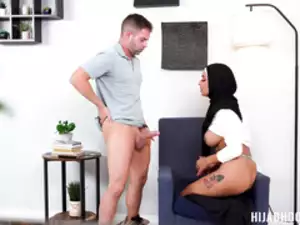 4 years ago
4 years ago
Friday evening and as usual Brad and I were in our local pub, drinking and talking about how we were going to change the world and make our fortunes. We also talked about girls, obviously; ones we knew and ones we never really knew, but would've loved to have known - the usual boy’s pub nonsense. Brad was my best mate; we had grown up together from school days. We told each other about our triumphs with any girl, and some of the let downs. We had no secrets from each other. We had been at the...
Wife Lovers 2 years ago
2 years ago
Eyes wide with shock, Lisa’s head whipped around at the sound of shattering glass; the object having hurtled past her shoulder and collided with the door frame. “Don’t you walk out on me Lisa, I’m not finished talking about this,” the edgy frustration in Jason’s voice was evident as he stood just inside the dimly lit bedroom. “You did not just throw that!” Lisa hissed furiously, her green eyes narrowing into emerald slits, as auburn curls swung angrily around her stiff shoulders. She continued...
Reluctance 3 years ago
3 years ago
Shannon Blake couldn't help it. She simply had to talk herselfinto trouble. This had been a problem for her growing up at home,at school and later on, wherever she worked. She seemed tocrave confrontation and constantly found herself arguing withothers over the smallest of issues.Of course, this was before she met Erik Powell.The two had been dating less than a month when Shannon managedto instigate a loud argument in the middle of a film theywere watching. Aggravated by Shannon's behavior and...
 2 years ago
2 years ago
My name is Jack, I am a New York City firefighter and this is the story of when my four firefighter friends and I met a girl named Camryn in a bar and changed her life forever.I have been a firefighter for six years and in those six years my fire crew and I have had some amazing adventures, but none so amazing as the night a simple couple of beers down the local bar turned into so much more.In our firehouse we have two crews and tonight, East Side, which is my crew made up of five firefighters...
Group Sex 2 years ago
2 years ago
I sat on the big chaise lounge by the fire pit. There was a slight chill in the air, summer had began to give away to fall. These were the days I enjoyed most of the year and yet like spring they also seemed the most fleeting. I could not help thinking that we lived mostly in the extremes: hot and cold, light and dark. There seemed little time to hold onto the twilights, the dawns, the subtler moments of being, the connecting moments. Knotted pine popped in the fire pit, sending an arc of...
 3 years ago
3 years ago
Caught Fire Part 1By DariUntil now my life had been pretty one-dimensional. I had never had the freedom to make my own decisions; there had always been others who were there to tell me what to do. First my father and aunt, who had done their best to raise me as a pious farmer's daughter. When it became apparent that I was not really suited for this kind of life - being a farmer is kind of the last job that you want to have when you can ignite whole fields of wheat with the power of your...
 2 years ago
2 years ago
We marched for a while longer, Vasiliev and the wounded Krell hanging near the back, with the armed humans at the front. We’d figured out how to use the shield projectors, they were handy little things, devices about the size of a wrist-mounted computer that could create a barrier of plasma roughly the size of a garbage can lid. If we came across more Bugs, we could use their own tactics against them. “You doing alright, Raz?” I asked as she walked beside me. “What, this?” she asked as she...
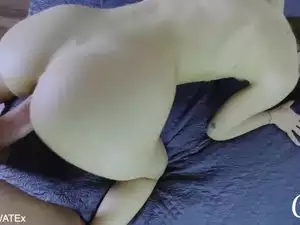 4 years ago
4 years ago
She heard the howls of the wargs as they regrouoped and began the hunt. As she rode further into the woods she heard something that made her blood run cold. Further ahead of her in the trees she could hear the howls of a second warg pack, the howls continued as they began to fan out circling her in the trees. They were still to far off from her to see in the darkness but she knew they had an idea of where she was in the woods. As Arnial turned the horse to try retracing her path a bit she...
 4 years ago
4 years ago
Frida was doing her crunches on the padded mat when two of the new girls came in to practice on the weights and not really knowing what they were doing. She wanted to say something to them but figured the males in attendance would be more than happy to fill them in on the best procedures to use. So she just kept pumping the crunches out and sweating all over the mat. She glanced over at them making silly mistakes with the weights and saw that they both were more trim than fit and that they...
 3 years ago
3 years ago
any of the actresses mentioned below. This story is written down for enjoyment purposes only. Reese witherspoon woke up with a headache. She didn't know where she was. All she could feel that she was blindfolded. Not only that, she was tied to the bed with duct tape, unable to move her hands and legs. She also noticed that she was nude. A duct tape covered her mouth so that she shouldn't shout. All she remembered was going to a producer's home for some script reading of a film they were...
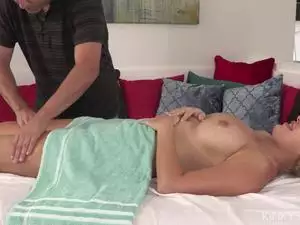 3 years ago
3 years ago
Unusually for me this story contains no sex or uncouth language. There is a bit of violence, though, and it is definitely for adults. As ever, constructive criticism would be very welcome. I'm sure this is due for at least another draft or two. An Invocation of Fire By XoYo In the hour of ice and death, in the last throes of darkness before dawn tears up the clean night sky, you shook your last and died in my arms. I clutched your wasted body throughout the day, feeling your...
 2 years ago
2 years ago
Anna heard the sirens in the distance, their warning wail muted by blocks and blocks of wood framed houses. Automatically she listened for the nuances in tone and pitch that would tell her if they were drawing closer or would pass by into another part of the city. The sound grew louder, overshadowing the muted TV and its unfunny sitcom. They had turned off Geary, she decided, down Fillmore, or probably closer, Steiner or even Scott. She strained to hear. It was Steiner, the sound would have...
 4 years ago
4 years ago
Soaked! Nothing could be more disappointing than crawling into bed and laying in an icy wet spot. I jump out and pull the heavy brown quilt down to discover the cause of the wetness. I don't drink in my bed, it can't be anything I've spilled on the bed. I haven't wet the bed, I hope it's not from an animal that came inside the cabin to escape the snow. Snow. Of course it's snow, I look up and can see a fine flutter of snow falling from a hole in the ceiling. I sigh, what I viewed as quaint...
Love Stories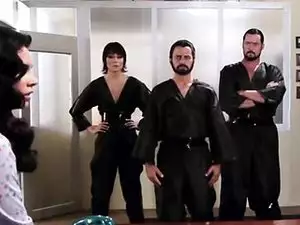 3 years ago
3 years ago
Chapter 1: A Life Ablaze Virginia. April 1956 It was the extreme heat that brought Robert Tierney out of his stupor. Gaining consciousness quickly, he saw the flames splashing around him, the walls were already consumed by fire and the roof of the shed was aflame looking ready to collapse. Pulling himself onto his unsteady legs he could hear the sirens in the distance. Stumbling to the door, he reached for the handle, quickly pulling back his hand at the extreme temperature of...
 2 years ago
2 years ago
Anna heard the sirens in the distance, their warning wail muted by blocks of wood framed houses. Instinctively she listened for the nuances in tone and pitch that would tell her if they were drawing closer or would pass by into another part of the city. The sound grew louder, overshadowing the muted TV and its unfunny sitcom. They'd turned off Geary, she decided, down Fillmore, or probably closer, Steiner maybe or even Scott. She strained to hear. It was Steiner. The sound would have been...
 4 years ago
4 years ago
by mypenname3000 Copyright 2015 Chapter One: Shadow and Fire Notes: Thanks to b0b for beta reading this! Saturday, June 7th, 2054 – Astarte – Paris, Texas Paris, Texas had been the best place to hide from Mark and Mary. They never suspected when they killed me that I went anywhere other than to the Abyss. Instead, I was raised by the Mayor's daughter, Darleen Cummings, the idiotic girl that the Ghost had sold to me for that wondrous night of debauchery. The vessel I inhabited...
 2 years ago
2 years ago
Sirens and the rule of law rang out from up over the hill. Couldn’t be so divine as to bludgeon the heat of August nor smother the vengeful Despréaux fire, but the rain was a sudden blessing. All the lady angels in heaven, resplendent in their shimmering see-through gowns, must have been running through the sprinklers on God’s lawn. Mud squished between his toes and it felt good. Every time the thunder came creeping in over the sound of the bullhorn, it gave him some measure of satisfaction....
 3 years ago
3 years ago
Zoë was bored. Desperately bored. Amazingly bored. And in need of a fuck, just one good fuck. Letting her beautiful long hair down her back, dressed in her tight top and tighter trousers, she went out for a drink. Finding a good bar, she sat alone at a table for one, bored, lonely, and itching for some goodness. The bar, however, is mainly empty, with people so damn ugly; she wouldn?t fuck ?em for all the gold in Sihnon. Except for one person. A girl, quite the hottie, that she keeps looking...
 3 years ago
3 years ago
With the film now out a new lease of life it’s about time we tried a Firefly/Serenity story based on Joss Wheadon’s failed TV series about the crew of the cargo ship Serenity. Lead by Captain Mal Reynolds a brooding ex-soldier from the losing side in a war, his first officer Zoë her husband and ships pilot Wash, the ships on board companion and ambassador/whore Inara, the cute engineer Kaylee wanted fugitives Dr Simon Tam and his sister her crazy River, Shepard Book and the Man they call Jayne...
 4 years ago
4 years ago
Every time Tom was in the restaurant, it was the same. He couldn’t decide which of the two women he wanted more. Polly was a tomboyish little thing with short, peroxide blonde hair, pert little tits and just a slight curve to her tight ass and hips. She had a lovely smile and her blue eyes always flashed brightly. Beverly’s was a more classic beauty. She possessed a curly mane of paprika red and laughing green eyes. Also of petite stature, her figure was womanly with generous hips, and a full...
Bisexual 3 years ago
3 years ago
It was a Saturday night like any other at my little country bar. Mostly regulars hanging out and drinking beer. Telling hunting stories and tells of mischief from bygone years. It was cold out and the warmth of the bar felt good. As I was about to leave and head to my cabin to enjoy a roaring fire I had started that afternoon, a group of women walked into the bar. I knew most of them—but there was a new lady that I had not seen before. I made a quick decision to stay a while longer because...
Straight Sex 4 years ago
4 years ago
Hellfire. A name well known around America. Essentially a strip joint, but there are added perks if you're a senior member. Just like I have finally become. 3 years, I've waited, but I'm happy to say today's the day. I've finally joined the Hellfire club's inner circle. As a reward for joining, they offer me one of their "junior members," so to speak. Sebastian Shaw, the Club's leader, opens two doors on either side of the room with the push of a button, and I turn to look at the first girl: a...
 2 years ago
2 years ago
I had been shivering all day – and not only from the weather. Reid had been cold to me since we woke this morning, but it wasn't so unusual; it happened at least once a year. I have been with Reid for four years now, ever since our first year of college. Even then, my usually jovial Canadian flame would brew in cold anger, and nothing I could do would make him come around. Reid would ice me out, as if I were the reason for his discontent. I can assure you, I'm not – not directly anyways. We...
Straight Sex 2 years ago
2 years ago
Jada Lights My FireSo far I wasn’t impressed with L.A. The job paid well, so I could get a decent house in Topanga Canyon, but L.A. is a cold city. Not as measured by the mercury, of course, but by the people. So I was, needless to say, not thrilled to hear a loud knocking and pressing of my doorbell at two in the morning. I had to stumble out of bed, throw on some sweats, grab the .38 just in case, and head for the front door all while listening to some asshole who couldn’t wait for a minute.I...
 4 years ago
4 years ago
The heat of the bonfire warmed my hands as Lacy slightly nudged me. “Look straight ahead.” I slightly nodded, waited for a couple of seconds, and glanced up, peering over the flames of the raging bonfire. Sitting on a stump in between a group of other seniors sat Max, who seemed to be glancing back through his messy black hair, his green eyes sharply reflecting the fire’s dim light. Somewhere among the circle, a girl yelled in rejoice as she passed out bottles of soda and beer. I politely...
First Time 1 year ago
1 year ago
Helen had just turned 18, the world was her oyster so to speak. It was a Friday night in a small Californian town. The beach was looking inviting on a hot summer night. Helen knew there was probably some of the college kids doing their usual bonfire out on the beach that night. Every Friday there was something happening somewhere where she could find trouble to get into. With the summer heat she decided the beach would be her best bet. She got into her Jeep and headed to the beach towel in...
First Time 2 years ago
2 years ago
Backfire By Alec Stevens Note: This is my first story, so let me know what you think. (Story takes place mostly in and around Flint, MI) Chapter 1: Beginning of the End John Woodby walked down the hall to his next class from Advanced Placement Biology. He, being only in 10th grade and going into honors classes, was extremely smart. As a result of this, he was also stuck up, and everyone, especially the girls (due to the fact that he was the cutest guy in the school) hated him....
 3 years ago
3 years ago
The Autumn morning air was crisp & cool as Allison drove the winding dirt road to DJ’s cabin. She loved the scenic drive to his house and how quiet the area was. Her thoughts drifted between the beautiful drive and the love of her life. Allison knew that DJ may need some company after the long, stressful night. Fires didn’t usually shake him like this, but the emotions were high for the crew with this one. The water pounded down his back as he slammed his fist into the tile on the wall. DJ’s...
 3 years ago
3 years ago
My name is Sam. I’m a firefighter. As the city was in the grips of an arsonist, I found my destiny. I wasn’t looking for it, but I don’t think anyone ever is. I knew I was gay, really understood what it meant, when I was thirteen. I remember looking through the big holiday catalogs when I was younger than that, looking for toys and finding the men’s underwear section and staring, enjoying what I saw. I didn’t understand what I felt though. But when I was thirteen, it all changed. I was with a...
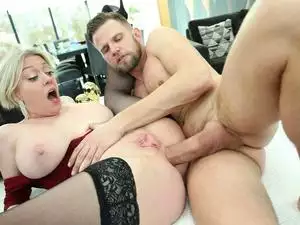 2 years ago
2 years ago
Fire Synopsis: When a young man's prank causes a fire, it causes changes for his friend. [-][+][-] Well, here I am, graduating as the class valedictorian, wearing my Drum Major uniform under my cap and gown, ready to lead the Eastmont High School Concert Band as everybody dances. My uniform is not the red tuxedo jacket, white dress shirt, blue tie and trousers of the band. No, I'm wearing a blue sequin miniskirt and matching bloomer with white shimmer tights and boots. Let me tell...
 2 years ago
2 years ago
Anne has always said I'm a control freak, but after many years in business, I've learned the devil is in the details. Even the small things can change the course of events of your life. Oh yeah, I admit it, I'm that guy. You know, the one that won't go shopping without a list, the one that changes his oil exactly every four thousand miles. I plan my days like a weather report. I had always found that there is a great amount of security in organization. Then, something happened a few months ago...
Group Sex 3 years ago
3 years ago
This story is the sequel to Taming Fire. To those of you who wanted me to continue on with Taming Fire: I’m sorry but it was completed in my mind and there was no way I could expound on it. To solve this problem, I interwove a little of Tessa’s story in with Jessie’s. There still might be a few errors in this story, but at least it wasn’t as rushed as Taming Fire. Please enjoy and remember to vote and comment! –~~– They pointed at him and called him monster. Danny Baker was just like any...
 4 years ago
4 years ago
This is my first story for Literotica. I would appreciate all tips and advice on improving. It’s about 5:30 pm, it’s Friday and its time to party, it was a long weekend for me as I had taken the day off. I was feeling lucky tonight and fancied some clubbing. A few friends told me a of new club in the trendiest spot in Johannesburg. So I get my best on, black jeans, black shirt and an Italian leather jacket. So I head off to the club and get into line talking with friends and admiring the...
 3 years ago
3 years ago
You don't care for me, I don't a-care about that You got a new fool? Ha! I like it like that I have only one burning desire: Let me stand next to your fire! —Jimi Hendrix, "Fire" (used without permission) Thursday, August 23, 2:19 AM Pain. Despair. Frustration. Helplessness. Rage. Fear. All of those awful feelings I had experienced throughout the summer, paled in comparison to the gut-wrenching terror that welled up inside when I saw the smoke and flames pouring from the eaves...
 2 years ago
2 years ago
Wildfire This is a story that I started, and wrote a few chapters of, on another site several years ago. I'm not comfortable with just bringing it here, so I'm rebooting the whole thing. I know, some of the characters are blatant rip offs, but the idea for this story came to me almost 30 years ago. Some of the characters reflect that. I admit that although these are Marvel characters, the name Wildfire is a dedication to my all time favorite, a member of DC's Legion of Superheroes....
 2 years ago
2 years ago
First, a little about myself; My names Jake, a male, 6' 210lbs 21 years old and fit. I currently live in the Midwest and had a plan to visit my Sister in Wisconsin for a mini-vacation. I began the 2 hour journey at 7pm, shortly after getting off of work. I stressful day for myself and could not wait to get to my Sister's house and have a drink. I cranked up the radio and continued to drive. I stopped a gas station about half way to my destination to drain my tank as well as, fill up my cars...
Incest 2 years ago
2 years ago
By : Sreddy460 Hello ISS readers, Thought to share my experiece with my internet Girlfriend. I don’t know if people would like my story or not I might be a bad narrator on my experience but a true one. Hopefully I could see some inputs/responses on my posting so it would be helpful for me when I narrate my next encounter, Here we go: My name is Sridhar, software professional, 27 years of age, 5.9 in height, average body and average looking guy. My GF name is Shanthi (name changed obviously),...
 2 years ago
2 years ago
“When I think of you masturbating alone in your room all those years, I wish we could have been together sooner. All those emails and cyber chat were wonderful. I know we had good orgasms but I also liked sharing our feelings with each other. It made it special.“Six years ago I never imagined I’d be with you tonight…or any night for that matter. I’d read some of your erotica and spent time reading your forum posts but it wasn’t in my head that we would be here together. Not ever.“It’s a...
 4 years ago
4 years ago
Having been a fireman for over 20 years, we always look for new and exciting experiences. Living in the Mid Atlantic and never having been to the west coast, the request for volunteers to go out and fight woodland fires in Oregon and Washington was all I needed, I jumped at the chance. All of the volunteers packed up their gear and we all met at Andrew's Air Force Base, as the government was willing to provide transportation to the west coast. Everyone chatted about our new adventure and we...
 2 years ago
2 years ago
Just a small story that came to me. Hope you enjoy it. Please remember to vote and leave comments. Thank you! –~~– ‘How badly do you want this guy?’ Jessie Quinn lounged on her best friend’s couch, sipping her tea, and quelling the urge to celebrate her friend’s frustration. Her small, shapely body was the epitome of comfort, her bright blue eyes gleamed with amusement, and her usually long wavy strawberry blond locks were tucked up in a fashionable black pageboy hat. Tessa Elroy paced back...
 2 years ago
2 years ago
I rented a small, furnished, two story home in an English country village for the year. I wanted to get away from the hustle and bustle of my American city and had always dreamed of living abroad. I had also ended a long relationship with my boyfriend of three years. I had an opportunity to change jobs and work from home so I took the plunge, researched different countries and affordable rentals, and moved. This village had everything I was looking for; charm, close to other people, shops and...
Straight Sex 3 years ago
3 years ago
After a full day of being on the slopes and playing in the snow we head back to our room to change for dinner. It has been a long while since we have seen our friends from college and it has been nice catching up but this trip was supposed to be about us getting to spend some time together too. After dinner we enjoy drinks at the bar and someone suggests that we go dancing. You are all for it but I am a little disappointed with your excitement. Everything has seemed so rushed we really haven't...